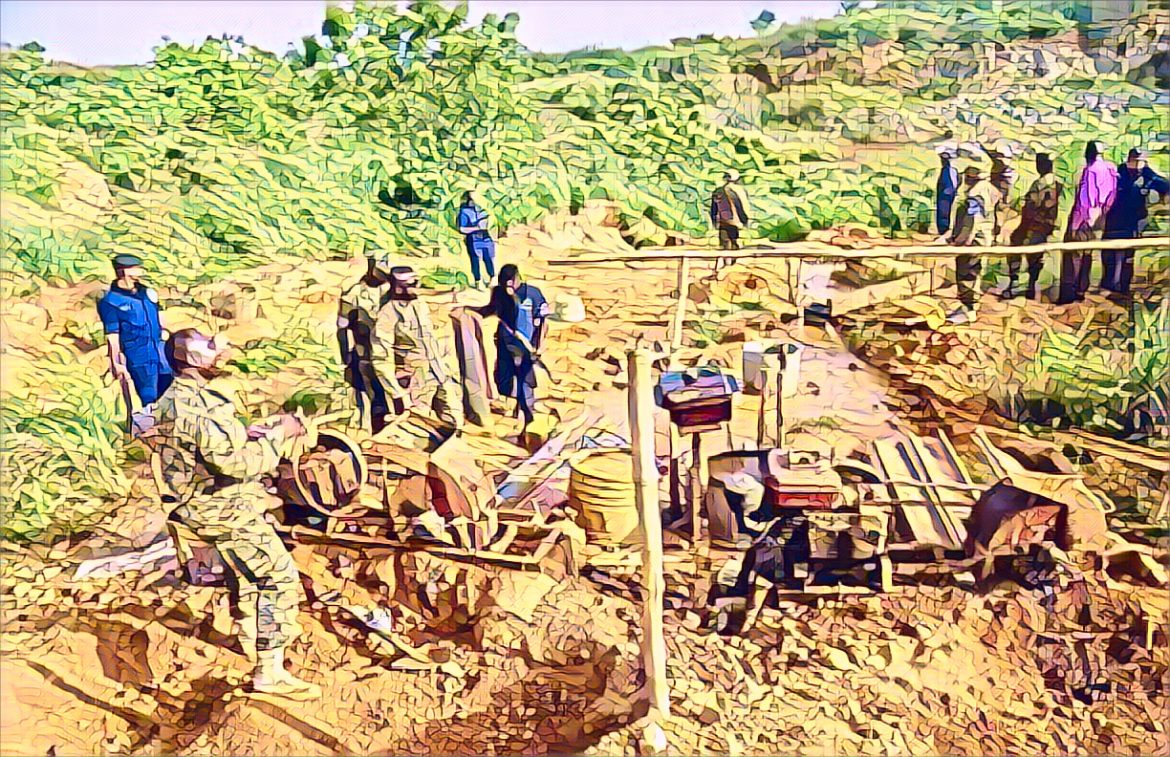In a decisive move to combat illegal mining, the Upper East Regional Security Council (REGSEC) has issued a stern directive to unauthorized miners occupying land in the border community of Sapelliga, Upper West Region, Ghana. This action highlights a growing concern over the environmental destruction and potential international disputes that such activities might precipitate.
Sapelliga, traditionally a quiet border area, has become a hotbed for illegal miners from both Ghana and Burkina Faso. These miners, known locally as “galamsey,” have not only degraded the environment but also jeopardized the clarity of the international boundary between Ghana and Burkina Faso by tampering with crucial boundary pillars. This situation poses a significant risk of territorial disputes and exacerbates security concerns in a region already sensitive to cross-border tensions.
Regional Minister and Head of the Upper East REGSEC, Hafiz Bin Saleh, has made it clear that the continuation of unregulated mining is unacceptable. During a visit to the affected area, he warned the miners to cease their activities and begin the process of regularization. “Please, if you want to continue operating here, do the right thing,” he urged, signaling a move towards regulated and licensed mining operations under the oversight of the Ghana Minerals Commission.
The involvement of the Ghana Boundary Commission in the REGSEC operation underscores the gravity of the situation. Commissioner General, Major General Emmanuel Kotia, expressed concerns about the ongoing removal of boundary pillars, which could lead to misinterpretations of the actual border line. Such ambiguities are particularly risky at a time when transnational issues like terrorism are on the rise. To counteract the potential for boundary confusion, the commission plans to facilitate the construction of patrol routes to clearly mark the international boundaries.
Aside from the immediate environmental degradation, the unchecked spread of illegal mining could provide a financial lifeline to criminal and terrorist networks in Burkina Faso. Regional Minister Saleh highlighted the dual threat of environmental harm and the financing of terrorism, pointing out the need for stringent measures to prevent these miners from becoming a financial resource for insurgents. The degradation caused by mining activities not only strips the land of its natural resources but also destroys ecosystems that local communities depend on for their livelihoods.
In his remarks, Minister Saleh also reminded the local population of the peace currently enjoyed by Ghanaians, which stands in contrast to the instability in neighboring regions. He emphasized the importance of maintaining this peace by addressing security threats proactively. The situation in Sapelliga serves as a critical reminder of the interconnected challenges of environmental conservation, national security, and international diplomacy.
Looking ahead, the REGSEC and the Ghana Boundary Commission are set to enhance their collaboration to secure the border effectively. This includes not only physical measures like the construction of patrol routes but also diplomatic and legal steps to ensure mining activities are conducted responsibly and transparently, with respect to both environmental laws and international agreements.
The actions taken by the Upper East REGSEC represent a vital step towards safeguarding Ghana’s territorial integrity and environmental heritage. By addressing the issue of illegal mining head-on, Ghana not only protects its natural resources but also contributes to regional stability and security. This proactive approach is essential for fostering sustainable development and maintaining the peace and prosperity that Ghanaians currently enjoy.
Source: My Joy Online





1 comment
Your point of view caught my eye and was very interesting. Thanks. I have a question for you.